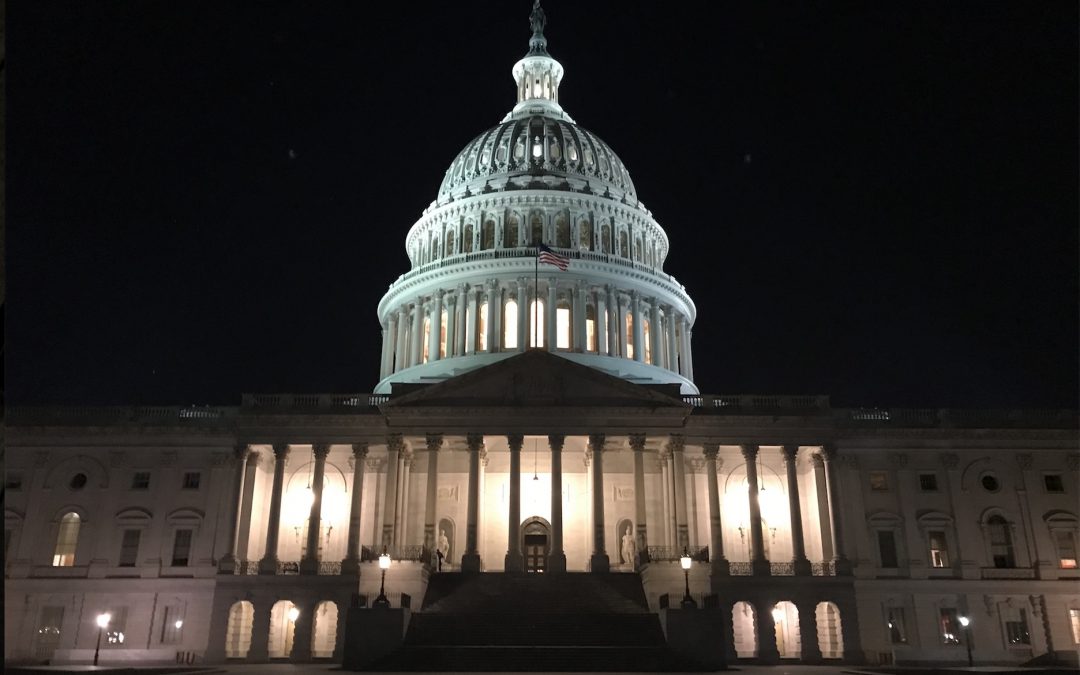WASHINGTON – The House has sent President Donald Trump a bill that would approve new sanctions against the government of Nicaragua in response to a reported crackdown on demonstrators during an uprising in the Central American country this past spring.
The legislation, approved by the House late Tuesday after Senate approval in late November, would impose stiff sanctions on the assets of any Nicaraguan official involved in state-sponsored repression or human rights violations. It also directs the Treasury Department to prevent future international lending to Nicaragua by the International Monetary Fund, the World Bank, and the Inter-American Development Bank.
“We are one step closer to expanding sanctions and other pressures against the oppressive Ortega regime and sending a clear message that the United States will not tolerate the ongoing human rights violations,” Rubio said in a statement.
In April, protests broke out in Nicaragua in opposition to proposed cuts to social security spending. Even though the cuts were canceled, the protests increased, including violent clashes between state security forces and demonstrators.
Over 300 people have died in the protests and several thousand have been injured. Human rights organizations have accused the Nicaraguan government of torturing and executing protestors, claims the government denies.
Fulton Armstrong, a fellow at American University and former National Intelligence Officer for Latin America, said the sanctions would do little to improve the crisis in Nicaragua and compared them to the U.S. embargo against Cuba.
“We often do these things without understanding the impact on the societies that are affected by our sanctions,” Armstrong said. “… Executive grand sanctions, Senate legislation, make us feel good morally. … No one has made the case that suspending all this stuff and isolating a government that has turned inward works.”
Between 2008 and 2017, the Nicaraguan government received $5.8 billion from multilateral institutions and $3.8 billion from Venezuela.
According to a report by the Brookings Institution, this lending increased the nation’s export earnings, decreased poverty and built up infrastructure.
But loans from Venezuela haven dropped to a trickle amid that country’s economic crisis, and the World Bank has approved no new funding for Nicaragua since the onset of the political crisis.
The World Bank currently has $541.8 million in financial commitments to Nicaragua in projects ranging from clean water, infrastructure and education. The International Monetary Fund, another multilateral institution has extended no new loans to Nicaragua since 2012.
The Inter-American Development Bank, on the other hand, has over a billion dollars in loans extended to Nicaragua. In 2018 alone, the IADB approved $92 million in loans to Nicaragua for renewable energy and clean water projects.
The legislation awaiting Trump’s signature has exceptions for lending related to humanitarian assistance and includes a waiver for loans related to sanitation, education and health.
Ortega, an anti-U.S. firebrand, has called this year’s uprisings an attempted coup, and in a September speech said the international lending rules of the bill would “do damage to the economy” of Nicaragua.
Under the Trump administration, the U.S. has taken a hardline stance on socialist Latin American governments like Venezuela, Cuba and Nicaragua. National security adviser John Bolton delivered a speech in Miami last month dubbing the three governments a “troika of tyranny,” and vowed increased U.S. pressure.
“The United States looks forward to watching each corner of the triangle fall,” Bolton said.
Senior administration officials told reporters at the time that the sanctions on Murillo were a first step in the administration’s strategy to pressure Ortega’s government and called for a solution to Nicaragua’s political crisis through fair elections.
According to Armstrong, Ortega could use the new sanctions to blame the U.S. for Nicaragua’s swelling political and economic disorder.
“What happens is Danny Ortega and his wife… use our actions to then rally their forces and say, ‘You see, the gringo is unfair and personalistic,’” Armstrong said. “… But what we need to do is serious strategic analysis and strategic thinking to help this country move into a democratic mode.”


